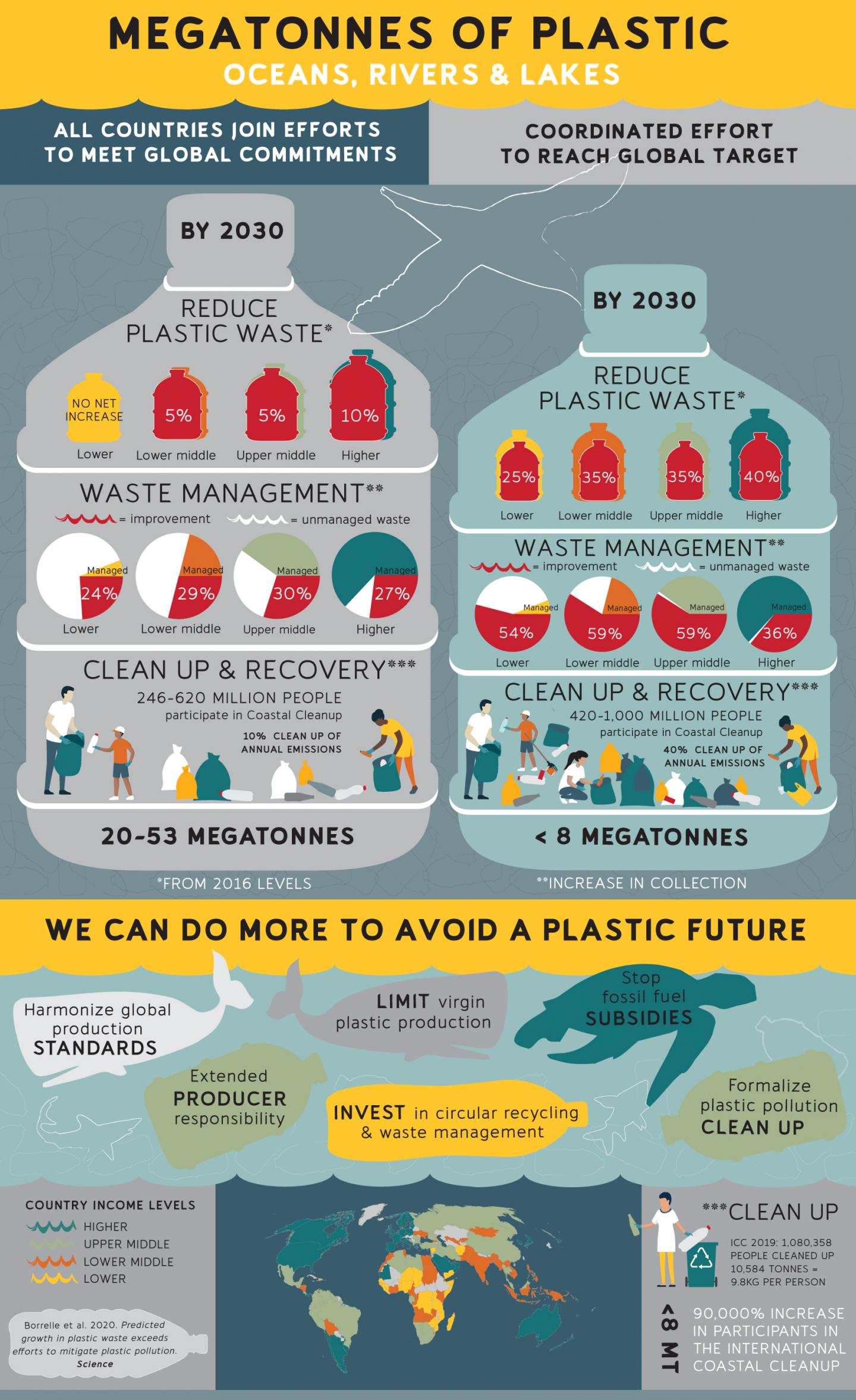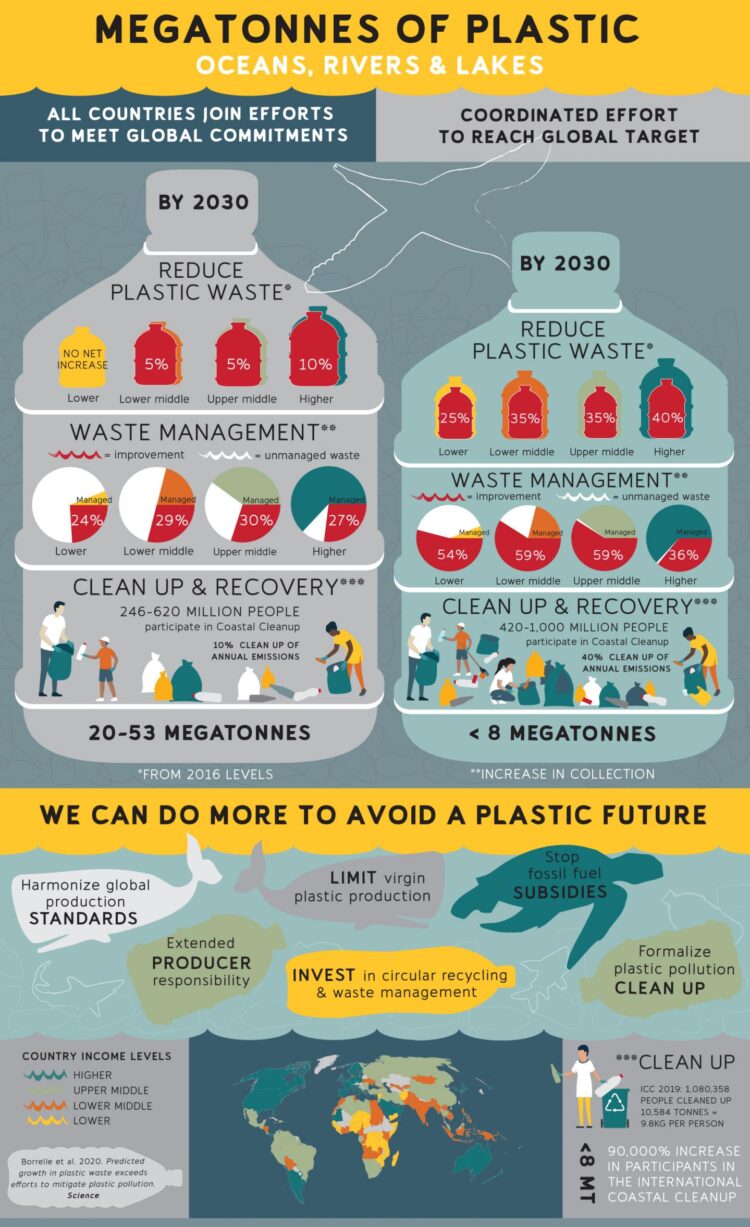
Credit: CreativeCause.com.au
TORONTO, ON – Ecologists studying the prevalence of plastic pollution in aquatic ecosystems around the world are concerned after measuring the scale of human response needed to reduce future emissions and manage what’s already floating around out there.
“Unless growth in plastic production and use is halted, a fundamental transformation of the plastic economy to a framework based on recycling is essential, where end-of-life plastic products are valued rather than becoming waste,” says Chelsea Rochman, assistant professor in the Department of Ecology & Evolutionary Biology at the University of Toronto (U of T), and senior author of a study published in Science outlining the accelerating pace with which plastic emissions enter Earth’s waterways annually.
“Even if governments around the world meet their ambitious global commitments, and other countries join those efforts to curb plastic pollution, worldwide annual emissions to rivers, lakes and oceans could be as much as 53 million metric tonnes by the year 2030,” says Stephanie Borrelle, Smith Postdoctoral Fellow at U of T and lead author on the study. “That’s far beyond the 8 million metric tonnes amount that was declared unacceptable in 2015.”
The research by an international group of experts led by Rochman and Borrelle, consisted of an evaluation of the level of effort needed to achieve a global reduction target for plastic pollution of less than 8 million metric tonnes (MT).
The group first estimated that 24-34 million MT of plastic emissions currently enter aquatic ecosystems every year. They then modelled future scenarios using existing mitigation strategies: reducing production of plastic waste (which includes bans), improving management of plastic waste that is produced, and continuous recovery (i.e., cleanup) from the environment.
The researchers found that even with parallel efforts in all three solutions, the level of effort required within each is enormous: (1) a 25 – 40% reduction in the production of plastic across all economies; (2) increasing the level of waste collection and management to at least 60% across all economies – with a change from 6 – 60% in low-income economies; and (3) recovery of 40% of annual plastic emissions through cleanup efforts.
“To put that last number into people power, the cleanup alone would require at least 1 billion people participating in Ocean Conservancy’s annual International Coastal Cleanup,” says Borrelle. “This would be a Herculean task given this is 660 times the effort of the 2019 cleanup.”
The researchers note, however, that even if the prescribed effort is realized, the world remains locked into an unacceptable plastic future.
“The global community must coordinate a fundamental transformation of the plastics economy, one that reduces the amount of virgin plastic production, and reimagines how we make use and dispose of plastic materials,” says Rochman.
The research was supported by the National Science Foundation through the National Socio-Environmental Synthesis Center (SESYNC).
###
MEDIA CONTACTS:
Chelsea Rochman
Department of Ecology & Evolutionary Biology
University of Toronto
[email protected]
+1 647 770 8135
Stephanie Borrelle
Department of Ecology & Evolutionary Biology
University of Toronto
[email protected]
+64 211362531
Sean Bettam
Communications + Public Affairs, Faculty of Arts & Science
University of Toronto
[email protected]
+1 416 946 7950
Media Contact
Sean Bettam
[email protected]
Related Journal Article
http://dx.





